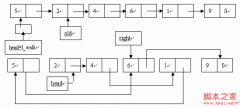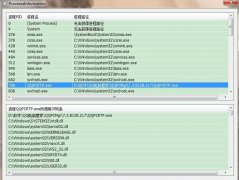I/O端口读写的实现
细心的读者会发现,C++Builder不再支持如inportb()、outportb()一类I/O端口读写指令了。准确地说,在Windows环境下,BorlandC++仅支持16位应用程序的端口操作,对32位应用程序的端口操作不再支持,而C++Builder开发出来的程序是32位的。我个人以为,这是C++Builder设计者的败笔。因为PC机中,I/O地址空间与内存地址空间从来都是各自独立的。看看Delphi,不就通过Port数组实现了对I/O端口的访问了吗?搞不清楚为什么C++Builder就没有提供类似的机制?下面这几个函数是笔者从网上淘下来的,经过验证,在Windows95环境下,的确可实现对I/O端口的读写。读者可以借鉴使用。
void outportb(unsigned short int port,unsigned char value)
{
//move dx,*(&port);
__emit__(0x8b,0x95,&port);
//mov al,*(&value);
__emit__(0x8a,0x85,&value);
//out dx,al;
__emit__(0x66,0xee);
}
void outportw(unsigned short int port,unsigned short int value)
{
//move dx,*(&port);
__emit__(0x8b,0x95,&port);
//mov ax,*(&value);
__emit__(0x66,0x8b,0x85,&value);
//out dx,ax;
__emit__(0xef);
}
unsigned char inportb(unsigned short int port)
{
unsigned char value;
//move dx,*(&port);
__emit__(0x8b,0x95,&port);
//in al,dx;
__emit__(0x66,0xec);
//mov *(&value),al;
__emit__(0x88,0x85,&value);
return value;
}
unsigned short int inportw(unsigned short int port)
{
unsigned short int value;
//move dx,*(&port);
__emit__(0x8b,0x95,&port);
//in ax,dx
__emit__(0xed);
//mov *(&value),ax
__emit__(0x66,0x89,0x85,&value);
return value;
}





